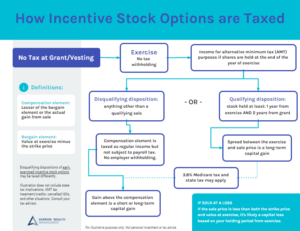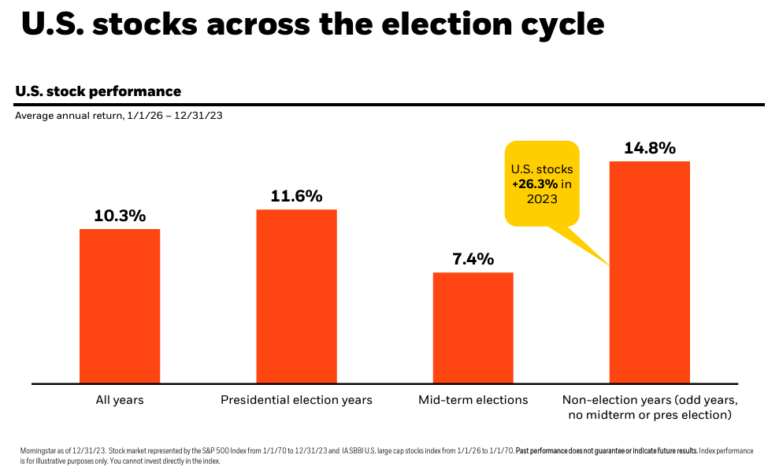The sale of a business marks a major life event. It’s emotional, stressful, and exciting all at the same time. And unfortunately, it’s often a lot of work. Most business owners will only experience the process of selling a business once in their life. This is both good and bad news. On the bright side, you only need to get through it once. But many business owners aren’t ready for the process and risk leaving money on the table as a result. With many sellers relying on the sale to fund their retirement and lifelong financial goals, getting it right from the start is critical. Here are tips from sell-side business advisors on what to do (and not do) when selling a business.
What to do (and not do) when selling a business
Start thinking about selling your business early — really early
One of the top mistakes sellers make when selling their business is not starting the process early enough. There are many reasons starting last minute can really hurt your bottom line.
It’s not uncommon for business owners to assume they’ll never retire at some point during their life. But as often happens, life changes. Perhaps health concerns for you or a spouse make continuing to run your business difficult. Or maybe you eventually lose the excitement when getting up every day and want a change of pace.
Sudden sales or immediate retirements
Unfortunately, when business owners want to sell with a tight timeline (or fire sale), they may have fewer options to exit. It’s not uncommon for some buyers to want the owner and/or members of the management team to stay on for a period to help with the transition. If there’s an earn-out, it’ll usually require the seller to stick with the company for different milestones (time, financial, or otherwise) to earn the full purchase price. Earn-outs aren’t ideal for sellers, but if you’re unwilling or unable to consider deals with any continuation component, it could impact the sale price, timeline to find a buyer, or both.
Make your business more sellable later by getting advice now
Business brokers often recommend getting a valuation done years before expecting to sell the company. Sarah Grossman, Principal of BayState Business Brokers in Needham, MA, says this helps sellers “shape their timeline and any financial planning that needs to be completed prior to a sale.”
Understanding the fair market value of the company is critical to setting expectations for the seller, but understanding the drivers of the valuation can help increase the sale price over time. Grossman says, “a [business] broker can advise them on things they can do in their business over the next few years to make it more saleable when it does go on the market.”
How to maximize your cash at closing
Aaron Naisbitt, Managing Director at Dunn Rush & Co, an investment bank focused on sell-side M&A in Boston, MA, emphasizes the importance of going to market and knowing what your business is worth. He says, “the biggest mistake many businesses owners make is not running a competitive process when the business is capable of attracting interest from a broad number of buyers. This mistake most often occurs when the owner has already made the second biggest mistake – not taking the time to educate themselves and prepare adequately for the process.”
Not every business will be able to run a competitive process. But those that can, and don’t, “Will leave money and terms on the table if they do not do so” he adds.
Getting professional help is key here as trying to negotiate a sale directly with a buyer might be short-sighted. Grossman says it’s not uncommon for sellers to be approached directly by competitors. She cautions sellers considering working with buyers directly as “They could be leaving significant money on the table without a clear understanding of the valuation of their company. Sellers also need to work with a broker and their advisors to understand a typical deal structure so that they can maximize their cash at closing.”
The importance of understanding the terms of the deal cannot be overstated. This is where money is made or lost. Naisbitt cautions that sometimes terms can sound really good, but aren’t always common sense. He adds that without an advisor, sellers “Don’t know where to argue.” During negotiations, you have to consider “What is it that’s important to you and what are you willing to give up” he says.
Exit planning is not time to DIY — assemble your team of advisors
When selling a company, gathering your team of advisors early on is key to getting a successful outcome. Again, odds are you haven’t sold a business before and probably won’t again. We don’t know what we don’t know…and you only have one shot to get this right.
Your team of business and personal advisors will be instrumental in getting the deal over the finish line. Your business advisory team may consist of: a business broker or M&A advisor, accounting and tax advisors, and transaction/M&A attorney. On the personal side, your financial advisor, estate planning attorney, and CPA/tax advisor should be involved throughout the process.
Business advisory team (sell-side)
Broker/M&A advisor
Business brokers and M&A advisors often perform similar functions, though the deal size, complexity, and geographical reach is typically greater for M&A advisors. Both professionals often help sellers with valuation, find/vet potential buyers, advise on deal structure/terms, etc.
Again, you only get one shot at this, so it’s critical to get it right the first time. Business brokers and M&A advisors typically only receive compensation for their efforts as a percentage of the sale price when the deal closes. So the goals of the advisor and the seller are aligned — everyone wants to get across the finish line with the highest price. But at the end of the day, Naisbitt always tells clients “If cash at close doesn’t make sense, don’t do the deal.”
One of the most visible ways sell-side advisors add value is by advising on deal structure. This includes ways to maximize your cash at closing but also avoiding traps for the uninitiated. For example, business owners might not realize that most earn-outs end in litigation. If an earn-out has to be on the table, Naisbitt says sellers should try to go as high up on the income statement as possible, because the seller will no longer have control of things like margins when the transaction is complete.
Tax and accounting
Essential functions for any business, yes, but remember, the sale of a business works differently than business as usual. Work with your tax and accounting team in advance to clean up QuickBooks, prepare financial statements, projections, and ready key metrics. You may need audited financial statements.
Even the most organized business owners won’t have their financial records in ‘sale-ready’ shape without deliberate effort to do so. The documentation just isn’t typically necessary in the regular course of business.
Legal advisors
Consider engaging an attorney who regularly work on M&A deals to assist with the sale of your business. Many companies already have corporate counsel in some capacity, but they might not be familiar with transactions like this. An experienced M&A attorney will know things like what legal terms should be in (or out of) the contract. And also how to protect your interests and prioritize your goals.
Personal advisory team
Financial advisor
Your personal wealth advisor will also play a key role in the sale of your business. Business owners usually have the bulk of their net worth tied up in the company. So the sale typically marks a major turning point financially. It’s not uncommon for owner-operators not to have a financial advisor at all prior to the sale. Consider working with a sudden wealth advisor who focuses on helping individuals experiencing a transformative liquidity event.
Be sure to involve your wealth advisor in discussions around deal terms too. For example, when considering deal structure, it’s important to ensure alignment with your objectives or financial needs. What are your income needs after the sale or do you have plans for a big purchase? Your advisor can help determine how much cash you need at closing and whether to consider the pros and cons of arrangements like an installment sale.
And at closing, a financial advisor can help you determine what to do with the money from the sale of your business. Wealth advisors typically quarterback the personal side of selling a business by coordinating with your tax and legal professionals.
CPA or tax advisor
A CPA can help analyze the tax implications of different deal structures and your possible tax liability under different scenarios. Examples include: excluding gains from the sale if eligible for Section 1202, realizing the gain over time with an installment sale, asset versus stock purchase, or state tax implications such as the Massachusetts ‘millionaire’ tax.
Consulting a personal tax advisor is critical before completing the transaction. As the seller (and taxpayer), you really want to focus on your after-tax proceeds. Your advisors on the business side are all going to be keying in on the gross numbers, not your net.
Estate planning attorney
The sale of a business is often a major financial change. Instead of having the bulk of your net worth locked up in an illiquid asset, you now have cash to invest, spend, protect in trust, or give away. Your estate planning attorney can help ensure your post-close financial situation and goals are reflected in your current estate plan and trust structure. It may also be a good opportunity after the sale to discuss any charitable goals, legacy objectives for heirs, or estate tax planning strategies.
Brokers explain what sellers are most unprepared for during the process
Selling a business is a lot of work. In addition to running the company in the usual course of business, sellers also need to comply with a host of due diligence requests from the buyer’s team and the lender financing the transaction. The magnitude of this process is by far the most common hurdle unprepared business owners face during the sale.
Grossman finds “Many sellers are unprepared for the level of due diligence required by the buyer and the lender.” She goes on to say “Buyers will need not only financial statements, but copies of bank statements, employee information, insurance information, corporate documents, and for larger deals, they will complete a higher level Quality of Earnings process where the seller’s accounting team will be involved. They will also be looking at consistency in revenue and margins, tenure of staff, customer concentration and competition, along with other factors to determine the health of the business moving forward.”
Aside from getting ready for due diligence, what else should sellers prepare for? According to Naisbitt, a lot. “The emotional impact of letting go of the business, hidden liabilities, tax implications, and employee reactions may add to the surprises, making the process more complicated and time-consuming than initially anticipated” he says, adding, “It’s a multifaceted procedure that can greatly benefit from professional guidance.”
Article written by Darrow Wealth Management President Kristin McKenna, CFP® and originally appeared on Forbes.











